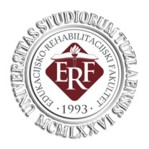FUTURE TEACHER' ATTITUDES TOWARD INTEGRATING STUDENTS WITH HEARING AND/OR VISION IMPAIRMENT INTO REGULAR SCHOOL
Keywords:
Integration, Deafness, Blindness, Students, Regular schoolAbstract
The attitudes of future teachers towards children with hearing and vision impairments affect the quality of educational integration and motivation for vocational training in the area of work with deaf and blind children. The aim of the paper is to determine the attitudes of future teachers on integrating students with hearing and/ or vision impairment into regular schools. The research was conducted via surveying 130 students of the Integrated University Undergraduate and Graduate Study for Primary School Teachers of the Faculty of Education in Osijek and Slavonski Brod. The research showed that future teachers agree positively with the integration of deaf and blind children into the regular school system, however they do not think that they are competent for such integration. Furthermore, they are willing to improve their competence in that area by attending additional seminars and/or lectures during their work period if the costs would be covered by the school in which they teach. On the other hand, the number of future teachers willing to finance such additional education on their own is smaller. Future teachers believe that the curricular reform, if it does, will bring change for the better when it comes to the integration of children with difficulties, and motivate teachers for getting extra education in that area. Research results may encourage future teachers to create a positive attitude towards becoming competent for communication with hearing and/or vision impaired children in their classroom which will lead to a more successful educational integration.
Downloads
Downloads
Published
How to Cite
Issue
Section
License

This work is licensed under a Creative Commons Attribution-NonCommercial-NoDerivatives 4.0 International License.







